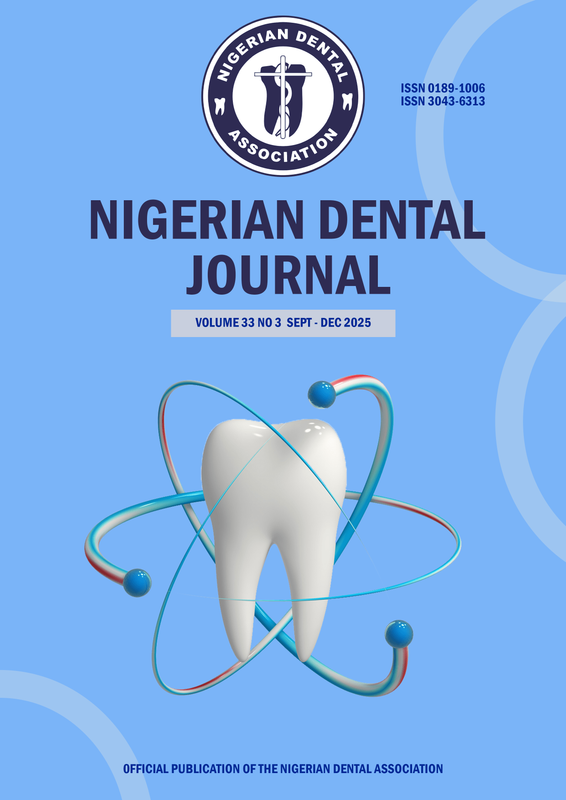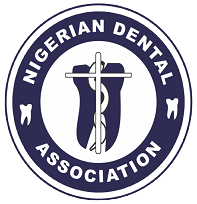Global Theme Issue: Poverty and Human Development The effect of poverty on access to oral health care in Nigeria
DOI:
https://doi.org/10.61172/ndj.v16i1.185Abstract
Nigeria is a country with a population of over 140 million people (1). Over 60% of Nigerians live in rural areas. Poverty is especially severe in rural areas where social services and infrastructure are limited or non existent. Africa is the continent where the poorest people in the world live. Nigeria is the most populous black African country where about 70% of the population live under one dollar per day (2). Nigeria has been classified as a poor nation. In Nigeria, majority of those living in rural areas are poor and depend on agriculture for food and income. Small scale farmers who cultivate tiny plots of land and depend on rainfall rather than irrigation system produce about 90% of the country\'s food. Women play a major role in the production, processing and marketing of food crops. The poorest group go on subsistence living but are often short of food, particularly during the pre-harvest period. Many poor Nigerians suffer from malnutrition and other diseases related to poor nutrition such as acute necrotizing ulcerative gingivitis (ANUG) and cancrum oris (3-6). The HIV/AIDS pandemic has also taken a heavy toll on the rural population and could be considered an emerging public health problem. The extremes of poverty in Nigeria are outrageous. The outrage is not just that avoidable deprivation, suffering and death are intolerable; it is also that these situations coexist with affluence. Corruption is endemic in Nigeria and this has impoverished the nation. Intergenerational poverty exists in the country. Fight against poverty is necessary to reduce intergenerational transfer of poverty in Nigeria because most Nigerian children are born into poverty. The oral health status of underprivileged Nigerians is generally poor. Many Nigerians suffer from oral diseases such as caries, fracture teeth, gingivitis, periodontitis, acute necrotizing ulcerative gingivitis, cancrum oris, malocclusion, tumours and other dental problems (7-15). Non availability of National data on the prevalence of common oral diseases among Nigerians is a major problem and poses a great challenge to the Nigerian Dental Association whose members are major stakeholders regarding oral health care delivery system in the country. Lack of national data has affected planning meaningful oral health care for Nigerians. This paper identified the barriers to access oral health care and stress the various strategies by which the Nigerian Dental Association and all stakeholders could assist the Federal Government of Nigeria to overcome these barriers and formulate policies that will prevent oral disease and move the nation forward to achieve the millennium development goal.
Downloads
Downloads
Published
Issue
Section
License
Copyright (c) 2008 Adekoya, C. A. Sofowora

This work is licensed under a Creative Commons Attribution 4.0 International License.
Open Access Statement
- We became fully Open Access since January 2023.
- Our new and archived materials are available free of charge on open basis and under a Creative Commons license as stated below.
Copyright statement
Copyright © 1999 The authors. This work, Nigerian Dental Journal by Nigerian Dental Association is licensed under Creative Commons Attribution 4.0 International License.

